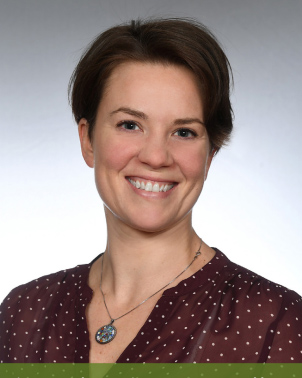
Kristen Ryczak, MD, Director, Women's Health Education Program; Assistant Professor, Family, Community and Preventive Medicine
By Kristen Ryczak, MD
Drexel University College of Medicine has long been a champion for the cause of women’s health and leadership. The predecessors to the College of Medicine were founded in part to provide access to a medical education for those who previously were barred from obtaining one, including women. Drexel’s Institute for Women’s Health and Leadership and the Executive Leadership in Academic Medicine program continue this legacy. The Women’s Health Education Program (WHEP) has also carried on that tradition by advocating for women’s health and preparing future physicians for excellence by understanding the unique health issues that women face. Our hope is for students to appreciate that women’s health is comprehensive and includes more than reproductive care. Every physician, regardless of specialty, should be proficient in delivering compassionate, culturally competent, inclusive health care to women.
WHEP has continued to evolve. While maintaining its historical roots in the promotion of cisgender women’s health, it has expanded to recognize and celebrate gender diversity. Our focus has broadened to be more inclusive of comprehensive sex and gender medicine. LGBTQ+ people of all genders have unique health care issues and deserve high-quality care. However, they continue to experience health care discrimination. WHEP believes that providing inclusive, culturally competent care requires addressing this long history of health disparities. Further, these disparities do not happen in isolation; there are many overlapping layers of inequity that occur in our society. Exploring the intersection of race, ethnicity, socioeconomic status, and other social determinants of health with sex and gender identities is crucial to honoring all aspects of a person’s identity and caring for patients.
The LGBTQ+ community experiences ongoing discrimination, including within health care, particularly for trans and nonbinary people. Many physi�cians still reflexively ask questions in heteronormative or gender binary–reinforcing ways, requiring their patients to either hide part of their identity or make an awkward correction, which inhibits trust-building between provider and patient. Other physicians openly discriminate against their LGBTQ+ patients by refusing to use correct pronouns and names, or refusing to care for them at all. On a broader scale, state laws in places like Arkansas are being enacted that ban gender-affirming medical treatments for patients under 18 years old. This removes decisions around the care of trans youth from the only people who should have a voice in the matter: the patient and their physician.
Improving the lives of all marginalized people by providing quality, accessible health care begins in medical school. The next generation of doctors must do better than our predecessors. Medicine cannot be practiced in a vacuum. A person’s gender identity and sexual orientation are a critical part of their health, which means that honoring those identities is a critical part of health care. While our WHEP Scholar students have chosen to specifically focus on either women’s health and sex and gender medicine or health equity issues during their medical education, all Drexel medical students are tasked with learning the importance of caring for the patient in front of them in a compassionate, inclusive way.
Our future physicians must learn to recognize and acknowledge their own biases and assumptions and avoid falling into those traps when caring for patients. To know and care for our patients, we must truly see them and the intersection of their identities and experiences. This is a delicate balance — we must be aware of the specific health issues cisgender women and LGBTQ+ people face, but also not see them only as that identity, just as we must not reduce people of color to just their race and ethnicity. Humans are wonderfully complex; no group of people is a monolith. Providing holistic, patient-centered care by treating the patient in front of you within the context of their individual experiences and needs is the foundation of inclusive, compassionate health care delivery.
What can we do as members of the College of Medicine community to ensure progress in the care of those who historically have not had access to it? Whether you are a future physician, allied health professional or researcher, a current educator of those future professionals, a professional staff member or an alum, the answer is “a lot.” The U.S. health care system is designed for white, English-speaking, cisgender people who are living without a disability. Start by looking for the ways we’re leaving others out, and then see how you can take specific corrective action. If you notice that a health system you interact with — as a professional or a patient — doesn’t have inclusive language on their intake forms, speak up. Similarly, does that hospital system have easy access to translation services and materials in multiple languages? Regularly check yourself about whether you made assumptions about someone’s sexual orientation or gender identity. Mentally correct yourself when you do. Get comfortable with saying your pronouns when introducing yourself; others may then feel comfortable doing the same. Examine other unconscious or implicit biases (or overt biases or prejudices) you may have, and seek out opportunities to challenge your ideas and educate yourself.
Every group of people is so much more than the struggles they endure. In June, we celebrate LGBTQ+ Pride Month. June was chosen to remember the Stonewall Riots of June 29, 1969, which began in response to a police raid on the Stonewall Inn. Pride events have been held ever since (only being recognized for the first time by the federal government in 1999) in commemoration of the countless contributions of LGBTQ+ people and in joyful celebration of the richness they bring to our communities. While there is work to be done, and there always will be, I am proud of our College of Medicine community and specifically WHEP and the Office of Diversity, Equity and Inclusion for their dedication to addressing these issues, and playing a meaningful part in making the world a better place for all our patients.
Happy Pride Month!